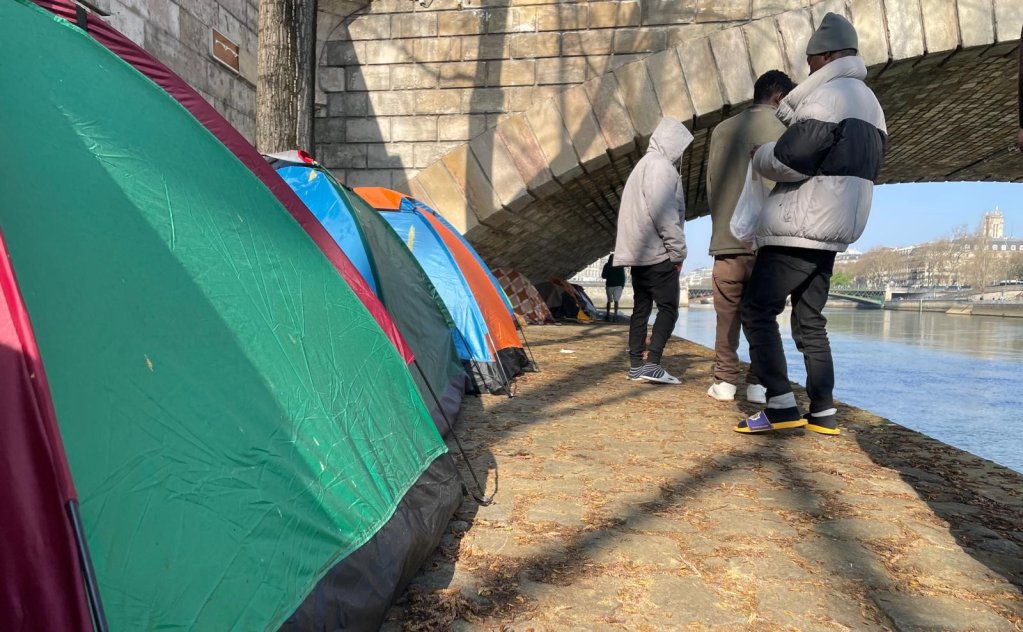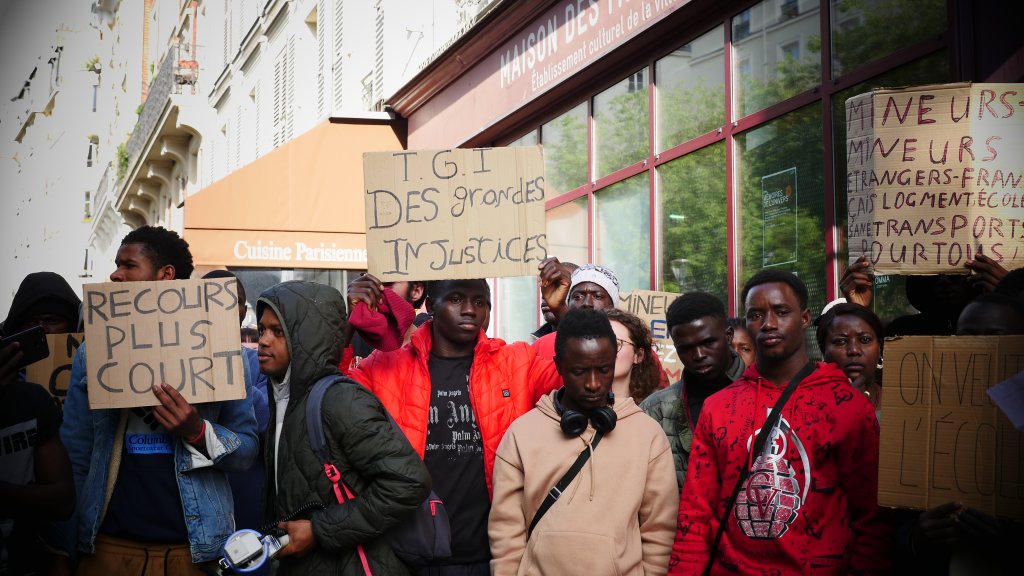A parliamentary commission published a report stressing the shortcomings in the care of unaccompanied minors (UM) in France. The MPs revealed that the handling of foreigners differs significantly from that of young French people, particularly with regard to housing.
"The accommodation conditions for unaccompanied minors are often among the most precarious in child protection," the parliamentary commission reported in its latest assessment, which raised concerns about the overall welcoming conditions for children in the care of child welfare services (ASE).
This is the "13th report published on the child protection crisis since 2022," Didier Tronche, president of the CNAPE (National Child Protection Agency), the main federation of child protection associations, told the news agency AFP.
In the 523-page document, a small section focuses on unaccompanied minors (UM) in France. And the MPs' view is unequivocal: these young people "too often experience low-cost care."
In 2023, 46,200 UMs and former UMs were in the care of child protection services, representing 21 percent of the children under the services' care. This figure has doubled in just a few years, rising from 20,000 to over 40,000 between 2015 and 2019.
Read AlsoParis police evict unaccompanied minors from Gaîté Lyrique amid clashes
Age assessment procedures
Upon their arrival on French soil, young foreigners face their first challenges. Assessing their age "is based on a set of indicators that are not always objective," the report's authors write. Interviews are "often extremely brief, even hasty," even though they determine their protection in France.

In 2022, a report by the state ombudsman (Défenseure des droits) already denounced that young people declaring themselves minors were "faced with assessment processes that show little respect for their rights, with the questioning of their civil status, their identity, their background and history, and with multiple reassessments of their situation."
As a result, "some young people are wrongly declared adults and find themselves excluded from child protection systems, leaving them wandering and precarious, even during an appeal of this decision," the MPs reported.
When unaccompanied minors' applications are rejected by the departmental services responsible for childcare, they most often file an appeal with a juvenile court judge. During this waiting period, which can last more than a year, the young people are left to fend for themselves on the streets.
It was in this context that the Belleville Park Youth Collective was formed in October 2023, when the park, which had been squatted for several weeks by minors seeking legal redress, was evacuated. The collective, supported by associations, moved last year to the Maison des Métallos, and more recently to the Gaîté Lyrique theater. The Parisian theater was violently evacuated by law enforcement in March, after more than three months of occupation by approximately 400 people. The young people temporarily settled on the banks of the Seine, before being evicted by the police on April 1.
To avoid this wandering and precariousness, the National Assembly's commission of inquiry is reiterating a long-standing request from associations: to assume they are minors "until the court decision when the child appeals to the judge to challenge the department's decision." In other words, the deputies want young people to benefit from temporary care from their first interview until the final decision of the juvenile court judge. An MP from the left-wing La France Insoumise (LFI) party tabled a bill to this effect on January 21, 2025.
Read AlsoHomeless migrants in France: 'They walk at night to avoid freezing to death'
'Deteriorated care conditions compared to other children'
The report also highlights an even more serious issue: the difference in treatment between unaccompanied minors and young French people cared for by the state child protection services. "Overall, unaccompanied minors often receive poorer care conditions than other children and young people receiving ASE," the commission reported, drawing from their own observations and social worker testimonies.
The disparity is mainly in housing. "Accommodation conditions for unaccompanied minors are often among the most precarious in child protection," the deputies write.

Unaccompanied foreign minors were overrepresented among young people placed in hotels when this type of accommodation was still permitted by law. The 2022 Taquet Law has prohibited the accommodation of minors, whether foreign or French, in hotels since February 1, 2024. However, some departments (French administrative regions) continue to accommodate young people in these facilities, "completely illegally."
According to the report, 5 percent of all young people in the care of child protection services are accommodated in social hotels. And among them, 95 percent are foreign minors.
This type of accommodation is unsuitable for an isolated population, without family or friends in France, and most without knowledge of the French language. "They thus find themselves without points of reference" and "become easy targets for criminal networks, prostitution, or illegal labor," the rapporteurs warned.
France has been found guilty several times "due to deficiencies in its procedures for sheltering and assessing unaccompanied minors," the report states. In January 2025, the European Court of Human Rights (ECHR) condemned France for "failure to protect" a Guinean minor. His minority status had been initially rejected by the French authorities, only to be recognized a year later. During this time, the young migrant was left to fend for himself and ended up living on the streets.
